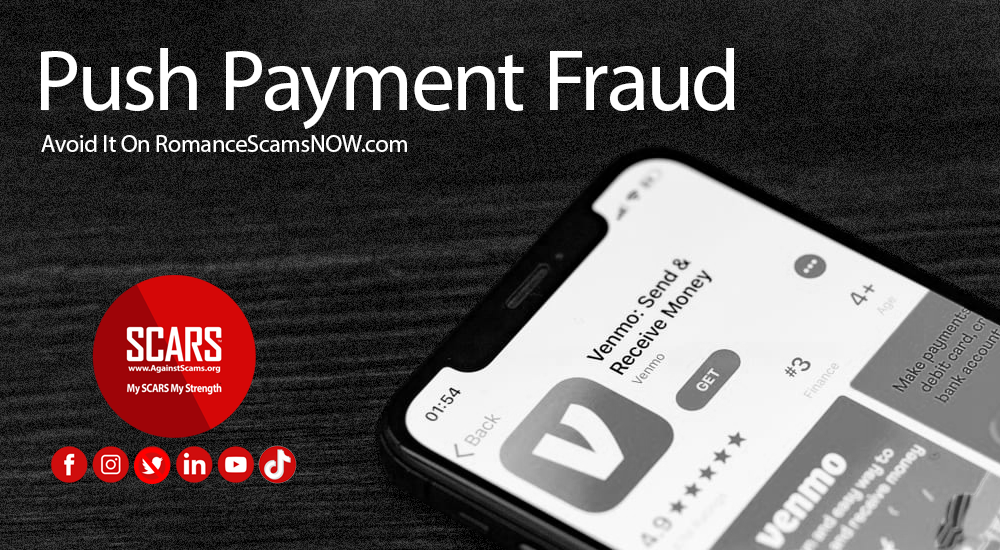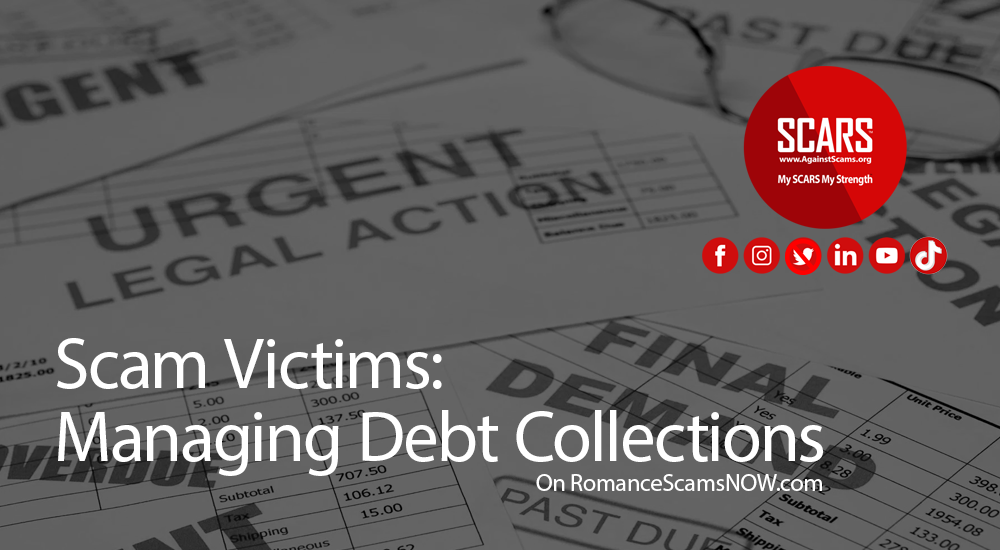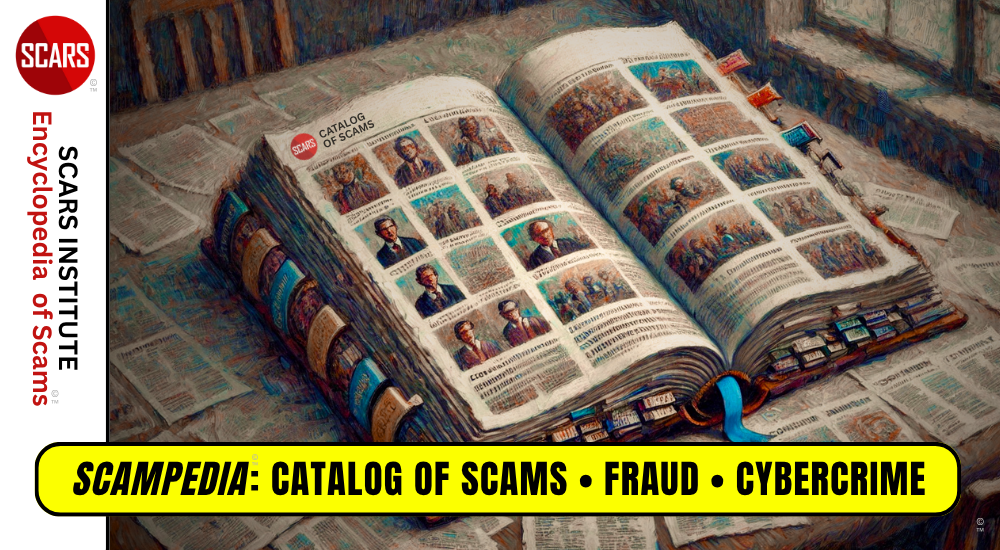
SCARS Institute’s Encyclopedia of Scams™ Published Continuously for 25 Years

Many Scam Victims Have Significant Debt After A Scam Ends
In many cases, this means having to face collection efforts.
This article will provide a tool to help you avoid debt collection scams (yes, you scammers many times know that you took out loans and will try to scam you again), and to better control real debt collectors.
Please see our 4 Step Guide for Debt Management
About Debt Collection & Spotting Scams
How Can I Verify Whether Or Not A Debt Collector Is Legitimate?
If you have debts, the odds are you are going to get calls from collection agencies – some will be real, some may not be.
Ask the caller for their name, company, street address, telephone number, and if they are state-licensed debt collectors, a professional license number (not only ask if they are but ask for the license number). You can also ask for and refuse to discuss any debt until you get a written “validation notice.” Do not give personal or financial information to the caller until you have confirmed it is a legitimate debt collector.
Here are a few warning signs that could signal a debt collection scam:
- The debt collector threatens you with criminal charges. Legitimate debt collectors should not claim that they’ll have you arrested.
- The debt collector refuses to give you information about your debtor is trying to collect a debt you do not recognize. You have certain rights to ask a debt collector about the debt, including when you don’t believe you owe the debt. You can use the sample letter below to request more information. Ask for an explanation in writing before you pay.
- The debt collector refuses to give you a mailing address or phone number.
- The debt collector asks you for sensitive personal financial information. You should never provide anyone with your personal financial information unless you are sure they’re legitimate.
If You Think That A Call May Be A Scam Or A Fake Debt Collector
Ask the caller for a name, company, street address, telephone number, and professional license number. Many states or countries require debt collectors to be licensed. Check the information the caller provides you with your government. Your state regulator or national licensing body may be of assistance if they license debt collectors. If the caller refuses or is unable to provide you with information about the company, or if you can’t verify the information provided, do not give information or money to the caller or company.
In many countries, debt collectors actually work for the courts – be sure to understand what process your country follows.
Tell the caller that you refuse to discuss any debt until you get a written “validation notice.”
This notice must include:
- The amount of the debt
- The name of the creditor you owe
- A description of certain rights under the U.S. federal Fair Debt Collection Practices Act or equivalent in your country.
You can consider sending the collector a letter requesting the information by using one of the CFPB’s sample letters. You can also submit a complaint to the CFPB or you can contact your state Attorney General’s office. There will be a similar process in most countries – go online and look for the legal debt collection process in your country.
Do not give the caller personal financial or other sensitive information. Never give out or confirm personal financial or other sensitive information like your bank account, credit card, or Social Security number unless you know the company or person you are talking with is a real debt collector.
Scam artists, like fake debt collectors, can use your information to commit identity theft such as:
- Charging your existing credit cards
- Opening new credit card or checking accounts
- Writing fraudulent checks
- Taking out loans in your name
Contact your creditor. If the debt is legitimate – but you think the collector may not be – contact your creditor about the calls. Share the information you have about the suspicious calls and find out who, if anyone, the creditor has authorized to collect the debt. Refer to our 4 Step Guide about contacting your creditors.
Report the call. Submit a complaint with the CFPB or get in touch with your state Attorney General’s office or with your local government with information about suspicious callers.
Stop speaking with the caller. If nothing else works and you believe the calls are fraudulent, send a letter demanding that the caller stop contacting you, and keep a copy for your files.
You can use this sample letter to write a letter demanding the debt collector stop contacting you. By law, debt collectors in the U.S. must stop calling you if you ask them to communicate only in writing.
However, telling a debt collector to stop contacting you does not make the debt go away and it does not stop a debt collector from reporting the debt to credit reporting companies or suing you.
If you’re having trouble with debt collection, you can submit a complaint with the U.S. CFPB online or by calling (855) 411-CFPB (2372) – Australia, Canada, New Zealand, and the United Kingdom all have similar protective services – search for them online.
More Information About Collections
Sample Response Letter
First, you must get the address or email address of the collector.
You can tell them you will respond in writing using the sample letter below. Use the sample letter below to ask for more information about this debt and to give you confirmable information about the debt and the collector.
How to use this sample letter:
- Fill in your information on the sample letter and edit it as needed to fit your situation.
- Delete any parts that don’t apply to you.
- Print and send or email the letter as soon as you can.
- Keep a copy for your records.
- You should consider sending the letter by certified mail or another method by which you can establish when the letter is received by the intended recipient. A Read Receipt on email also works.
The Basics Of Using This Approach
Send this letter as soon as you can — if at all possible, within 30 days of when a debt collector contacts you the first time about a debt. This is important because, under the U.S. Federal Fair Debt Collection Practices Act, your legal rights to obtain verification information from a debt collector are greater during the 30-day period. This is probably true in other countries too – time works against you!
When a debt collector is asking you to pay money, you’re entitled to ask for details. The sample letter below will help you to get details on the following:
- Why a debt collector thinks you owe this debt.
- The amount of the debt and how old it is.
- Details about the debt collector’s authority to collect this money.
A debt collector may not have a legal obligation to provide some or all of the information you seek, even if you request it within the 30-day period. If the collector doesn’t give you what you request, that doesn’t necessarily mean the debt collector has broken any laws or has given up a legal right to collect from you, or is a scammer.
When you have doubts about a collector do contact your government consumer protection agency to find out what is required and what your rights are.
After You Send Your Letter
- If the debt collector makes vague statements about what will happen if you do not pay, read their response to your letter carefully. If they tell you that they intend to sue you, you should take that seriously. Federal law prohibits a debt collector from threatening to take any action they can’t take or that they don’t intend to take.
If you have specific questions, you may want to contact a licensed civil attorney or solicitor to help you. If you need a lawyer, you can use these or search for attorneys in your country:
- Review this list of state legal services.
- Find lawyer referrals in your county and state by visiting the websites for your local or county bar association, or legal aid.
U.S. State laws have statutes of limitations, or limited time periods when creditors or debt collectors can file a lawsuit to collect a debt.
- These periods of time can be two years or longer.
- The period of time varies by state and by the type of debt.
- In some states, even a partial payment on the debt will restart the time period – keep this in mind.
If you suspect that the debt may be beyond the statute of limitations, you may want to consult a lawyer before making any payment on a debt.
Not all states require debt collectors to be licensed. Where a license is required, knowing whether or not a debt collector is licensed may be useful. If the debt collector isn’t conducting themselves properly, you can contact the state licensing agency.
Sample Letter
Copy and paste the following and then edit as required:
[Your name] [Your return physical mailing/postal address][Date][Debt collector name] [Debt collector Address]
Re: [Account number for the debt, if you have it]
Dear [Debt collector name]:
I am responding to your contact about a debt you are trying to collect. You contacted me by [phone/mail], on [date] and identified the debt as [any information they gave you about the debt]. Please supply the information below so that I can be fully informed:
Why you think I owe the debt and to whom I owe it, including:
- The name and address of the creditor to whom the debt is currently owed, the account number used by that creditor, and the amount owed.
- If this debt started with a different creditor, provide the name and address of the original creditor, the account number used by that creditor, and the amount owed to that creditor at the time it was transferred. When you identify the original creditor, please provide any other name by which I might know them, if that is different from the official name. In addition, tell me when the current creditor obtained the debt and who the current creditor obtained it from.
- Provide verification and documentation that there is a valid basis for claiming that I am required to pay the debt to the current creditor. For example, can you provide a copy of the written agreement that created my original requirement to pay?
- If you are asking that I pay a debt that somebody else is or was required to pay, identify that person. Provide verification and documentation about why this is a debt that I am required to pay.
The amount and age of the debt, including:
- A copy of the last billing statement sent to me by the original creditor.
- State the amount of the debt when you obtained it, and when that was.
- If there have been any additional interest, fees or charges added since the last billing statement from the original creditor, provide an itemization showing the dates and amount of each added amount. In addition, explain how the added interest, fees or other charges are expressly authorized by the agreement creating the debt or are permitted by law.
- If there have been any payments or other reductions since the last billing statement from the original creditor, provide an itemization showing the dates and amount of each of them.
- If there have been any other changes or adjustments since the last billing statement from the original creditor, please provide full verification and documentation of the amount you are trying to collect. Explain how that amount was calculated. In addition, explain how the other changes or adjustments are expressly authorized by the agreement creating the debt or permitted by law.
- Tell me when the creditor claims this debt became due and when it became delinquent.
- Identify the date of the last payment made on this account.
- Have you made a determination that this debt is within the statute of limitations applicable to it? Tell me when you think the statute of limitations expires for this debt, and how you determined that.
Details about your authority to collect this debt.
- I would like more information about your firm before I discuss the debt with you. Does your firm have a debt collection license from my state? If not, say why not. If so, provide the date of the license, the name on the license, the license number, and the name, address and telephone number of the state agency issuing the license.
- If you are contacting me from a place outside my state, does your firm have a debt collection license from that place? If so, provide the date of the license, the name on the license, the license number, and the name, address and telephone number of the state agency issuing the license.
I have asked for this information because I have some questions. I need to hear from you to make an informed decision about your claim that I owe this money. I am open to communicating with you for this purpose. In order to make sure that I am not put at any disadvantage, in the meantime please treat this debt as being in dispute and under discussion between us.
In addition to providing the information requested above, please let me know whether you are prepared to accept less than the balance you are claiming is owed. If so, please tell me in writing your offer with the amount you will accept to fully resolve the account.
Thank you for your cooperation.
Sincerely,[Your name]
Dealing With Collections Is Not Easy
Sadly, we cannot stop the debts that you may owe, but our goal is to give you information or provide guidance that may help you stay in control and reduce your stress as you go through this challenge.
We wish you the best of luck, but remember you always have options if you exercise them early enough!
For More Information About Scam Victim Financial Recovery:
Select the following SCARS Articles & Guides for more information:
- SUPPORT & INFORMATION FOR NEW SCAM VICTIMS
- Scam Victims Debt Part 1: Recognize It, Confront It, Control It, Survive It!
- Scam Victims Debt Part 2: Debt Collection Scams & Managing Real Collections
- Scam Victims Debt Part 3: Collections & Your Rights
- Scam Victim Debt Part 4: IRS/Tax Debt
- SCARS™ Guide: Reclaiming Financial Control After A Scam
- Online Banking Safety For Scam Victims – An Overview
- Suing Your Money Mule or Scammer
- SCARS Next Steps™ – You Gave The Scammer Your Information?
-/ 30 /-
What do you think about this?
Please share your thoughts in a comment below!
Table of Contents
- Debt Collection Scams & Managing Real Collections
- Many Scam Victims Have Significant Debt After A Scam Ends
- In many cases, this means having to face collection efforts.
- About Debt Collection & Spotting Scams
- How Can I Verify Whether Or Not A Debt Collector Is Legitimate?
- If You Think That A Call May Be A Scam Or A Fake Debt Collector
- More Information About Collections
- Sample Response Letter
- After You Send Your Letter
- Sample Letter
- Dealing With Collections Is Not Easy
- For More Information About Scam Victim Financial Recovery:
LEAVE A COMMENT?
Thank you for your comment. You may receive an email to follow up. We never share your data with marketers.
Recent Comments
On Other Articles
- on Love Bombing And How Romance Scam Victims Are Forced To Feel: “I was love bombed to the point that I would do just about anything for the scammer(s). I was told…” Feb 11, 14:24
- on Dani Daniels (Kira Lee Orsag): Another Scammer’s Favorite: “You provide a valuable service! I wish more people knew about it!” Feb 10, 15:05
- on Danielle Delaunay/Danielle Genevieve – Stolen Identity/Stolen Photos – Impersonation Victim UPDATED 2024: “We highly recommend that you simply turn away form the scam and scammers, and focus on the development of a…” Feb 4, 19:47
- on The Art Of Deception: The Fundamental Principals Of Successful Deceptions – 2024: “I experienced many of the deceptive tactics that romance scammers use. I was told various stories of hardship and why…” Feb 4, 15:27
- on Danielle Delaunay/Danielle Genevieve – Stolen Identity/Stolen Photos – Impersonation Victim UPDATED 2024: “Yes, I’m in that exact situation also. “Danielle” has seriously scammed me for 3 years now. “She” (he) doesn’t know…” Feb 4, 14:58
- on An Essay on Justice and Money Recovery – 2026: “you are so right I accidentally clicked on online justice I signed an agreement for 12k upfront but cd only…” Feb 3, 08:16
- on The SCARS Institute Top 50 Celebrity Impersonation Scams – 2025: “Quora has had visits from scammers pretending to be Keanu Reeves and Paul McCartney in 2025 and 2026.” Jan 27, 17:45
- on Scam Victims Should Limit Their Exposure To Scam News & Scammer Photos: “I used to look at scammers photos all the time; however, I don’t feel the need to do it anymore.…” Jan 26, 23:19
- on After A Scam, No One Can Tell You How You Will React: “This article was very informative, my scams happened 5 years ago; however, l do remember several of those emotions and/or…” Jan 23, 17:17
- on Situational Awareness and How Trauma Makes Scam Victims Less Safe – 2024: “I need to be more observant and I am practicing situational awareness. I’m saving this article to remind me of…” Jan 21, 22:55
ARTICLE META
Important Information for New Scam Victims
- Please visit www.ScamVictimsSupport.org – a SCARS Website for New Scam Victims & Sextortion Victims
- Enroll in FREE SCARS Scam Survivor’s School now at www.SCARSeducation.org
- Please visit www.ScamPsychology.org – to more fully understand the psychological concepts involved in scams and scam victim recovery
If you are looking for local trauma counselors please visit counseling.AgainstScams.org or join SCARS for our counseling/therapy benefit: membership.AgainstScams.org
If you need to speak with someone now, you can dial 988 or find phone numbers for crisis hotlines all around the world here: www.opencounseling.com/suicide-hotlines
A Note About Labeling!
We often use the term ‘scam victim’ in our articles, but this is a convenience to help those searching for information in search engines like Google. It is just a convenience and has no deeper meaning. If you have come through such an experience, YOU are a Survivor! It was not your fault. You are not alone! Axios!
A Question of Trust
At the SCARS Institute, we invite you to do your own research on the topics we speak about and publish, Our team investigates the subject being discussed, especially when it comes to understanding the scam victims-survivors experience. You can do Google searches but in many cases, you will have to wade through scientific papers and studies. However, remember that biases and perspectives matter and influence the outcome. Regardless, we encourage you to explore these topics as thoroughly as you can for your own awareness.
Statement About Victim Blaming
SCARS Institute articles examine different aspects of the scam victim experience, as well as those who may have been secondary victims. This work focuses on understanding victimization through the science of victimology, including common psychological and behavioral responses. The purpose is to help victims and survivors understand why these crimes occurred, reduce shame and self-blame, strengthen recovery programs and victim opportunities, and lower the risk of future victimization.
At times, these discussions may sound uncomfortable, overwhelming, or may be mistaken for blame. They are not. Scam victims are never blamed. Our goal is to explain the mechanisms of deception and the human responses that scammers exploit, and the processes that occur after the scam ends, so victims can better understand what happened to them and why it felt convincing at the time, and what the path looks like going forward.
Articles that address the psychology, neurology, physiology, and other characteristics of scams and the victim experience recognize that all people share cognitive and emotional traits that can be manipulated under the right conditions. These characteristics are not flaws. They are normal human functions that criminals deliberately exploit. Victims typically have little awareness of these mechanisms while a scam is unfolding and a very limited ability to control them. Awareness often comes only after the harm has occurred.
By explaining these processes, these articles help victims make sense of their experiences, understand common post-scam reactions, and identify ways to protect themselves moving forward. This knowledge supports recovery by replacing confusion and self-blame with clarity, context, and self-compassion.
Additional educational material on these topics is available at ScamPsychology.org – ScamsNOW.com and other SCARS Institute websites.
Psychology Disclaimer:
All articles about psychology and the human brain on this website are for information & education only
The information provided in this article is intended for educational and self-help purposes only and should not be construed as a substitute for professional therapy or counseling.
While any self-help techniques outlined herein may be beneficial for scam victims seeking to recover from their experience and move towards recovery, it is important to consult with a qualified mental health professional before initiating any course of action. Each individual’s experience and needs are unique, and what works for one person may not be suitable for another.
Additionally, any approach may not be appropriate for individuals with certain pre-existing mental health conditions or trauma histories. It is advisable to seek guidance from a licensed therapist or counselor who can provide personalized support, guidance, and treatment tailored to your specific needs.
If you are experiencing significant distress or emotional difficulties related to a scam or other traumatic event, please consult your doctor or mental health provider for appropriate care and support.
Also read our SCARS Institute Statement about Professional Care for Scam Victims – click here to go to our ScamsNOW.com website.
















Thank you for this article and the sample letter to establish creditability. Another thing that can be done is not answer any phone calls from numbers you do not recognize. This is how I handled the calls. I didn’t want to talk with them, additionally, as part of my program I was not to talk with creditors. The creditors had been contacted by the management company to direct all phone calls to them.